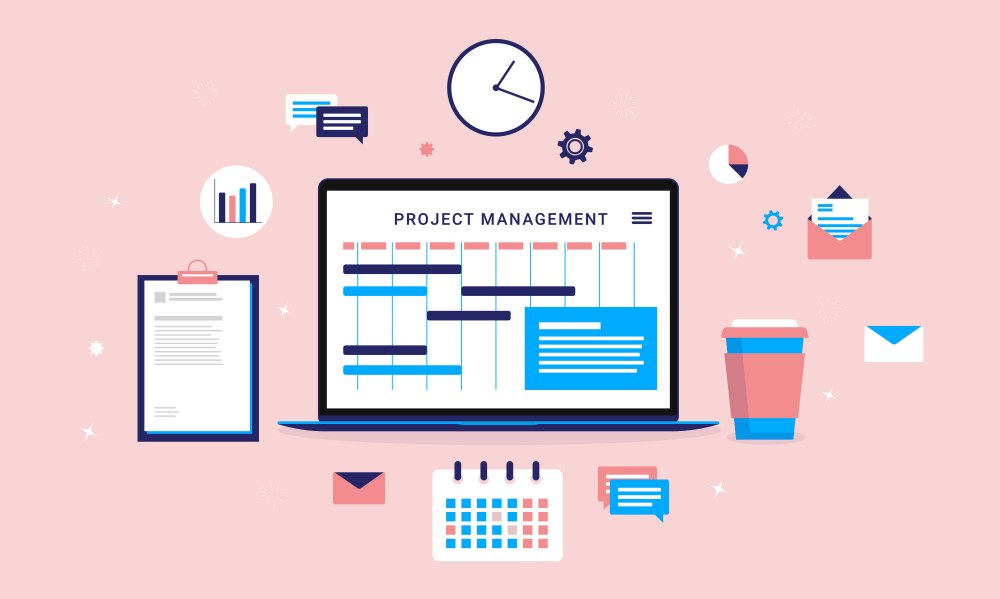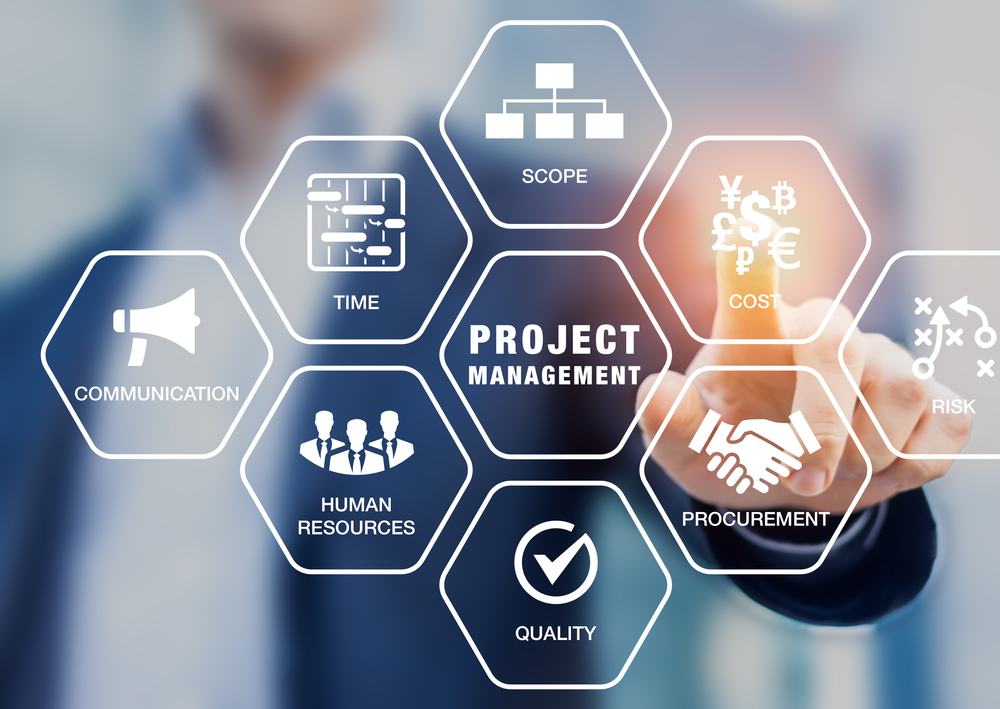It is a daunting task for project managers to handle projects, but by knowing the importance of project management knowledge areas, they can achieve a smoother workflow. These areas are important because they help you stay organized and in control of all your projects for successful completion. This article will cover the top 10 project management knowledge areas and how they work.
What are the 10 Knowledge Areas of Project Management?
Project management knowledge areas play a key role in organizing your projects, including planning, scheduling, and tracking certain aspects of a project. Therefore, project managers need to understand how these areas work together to form a management system. In the following section, we will cover the top 10 project management knowledge areas in detail:

1. Project Integration Management
Project integration management gives a distinct roadmap of your projects with which you can manage tasks, resources, and stakeholders. This area helps you coordinate various parts of your projects, keep the whole team informed about the overall plan, and ensure an effective workflow. Moreover, it provides managers to oversee, analyze, and report the whole process to make changes during the project process.
The integration area is a vast term that includes a coherent work cycle from the planning phase to the end of the project with a closure to the stakeholders. With the knowledge of this area of management, project managers can optimize their business cycle.
2. Project Scope Management
Project scope management helps you manage the scope of your projects, including the tasks, deliveries, and milestones every team member needs to achieve. It can be overwhelming for a team to achieve a project’s objectives within the given time stamp and resources. Therefore, project managers develop a plan that determines the task, the order, and the maximum cost and track the project’s progress.
The management plan helps your team stay aligned with the task and prevent any changes that might be added later to the project. Moreover, the managers need to make sure that the deliverables are regularly approved by the stakeholders.
3. Project Time Management
Team members can miscalculate the time required to complete a project, which is why time management is important. This area is crucial in project management for creating a schedule, setting deadlines, and tracking progress. Additionally, creating a plan can let you determine the total time and resources needed to complete a project with your team.
Project managers can also allocate equal tasks to each team member using this system to complete the project without any time issues. Furthermore, the time schedule needs to be revised by the stakeholders in case of any time changes.
4. Project Cost Management
Project managers should make an estimated budget on how much the project will cost to avoid any financial challenges that can throw down your project. Furthermore, it also includes keeping a record of all resources like labor, materials, and tools needed to complete the project. Therefore, managers can estimate costs using this management area, so the funds are within their expenses.
This management area includes setting a budget, tracking prices, and identifying ways to maximize your resources. Furthermore, in case of any changes in the budget, you should keep the stakeholders informed to avoid unnecessary conflict.
5. Project Quality Management
Project quality management is a part of project management knowledge areas, which ensures that your project deliverables meet the typical needs. If the quality of your project does not coincide with the client’s needs, it is a complete failure. Therefore, a management plan needs to include product testing and examining results before releasing the project.
Moreover, understanding the demands of the stakeholders can help your team create quality content within a reasonable time and budget.
6. Project Resource Management
Project resource management is about obtaining, assigning, and tracking your project resources with your team members. Therefore, it is the duty of a project manager to manage their team by assigning them suitable tasks to manage the project properly. Moreover, resource management keeps you informed on what and who is needed to complete a project successfully.
The project manager can assign the project to the team members and keep track of their performance to ensure the project is going smoothly. Additionally, this process can create a sense of learning and growth for each team member.
7. Project Communications Management
Project communications management provides essential communication guidelines to ensure your team is clear about the project plan. A steady flow of communication keeps your team and stakeholders on the same page and avoids any conflicts. Therefore, creating a communication plan makes it easy to inform your team about any changes, updates, or issues in the project.
Additionally, project managers should determine what amount of information needs to be communicated to the stakeholders to resolve any existing problems.
8. Project Risk Management
Every project faces challenges that risk the completion of the project, but you can use a project risk management plan. This helps you determine how the risk can be neutralized by identifying risks that can occur during project execution. Furthermore, the risk plan can also flag down upcoming issues and help you work around the problem to minimize risk.
In addition, you can control the risk by reviewing it regularly and crossing off those that no longer impact your project. Other than that, you can consult a project management book of knowledge, which includes using qualitative risk analysis to monitor these risks.
9. Project Procurement Management
Sometimes, the company faces challenges like a lack of resources or team members, so in that case, managers apply the project procurement management plan. This plan provides them with a blueprint for acquiring the goods and services necessary to complete the project. Moreover, it also provides you with knowledge of outside procurators, like hiring a suitable subcontractor to take on certain tasks.
Furthermore, this project management knowledge area keeps you updated on supplier’s work, from planning purchases to execution of the task. Managers can also monitor their progress and close the contract only when meeting the required needs.
10. Project Stakeholder Management
The last step is an important project management knowledge area that identifies project stakeholders and how to manage their expectations. Stakeholders are essential to the project as they provide product requirements processes and estimate project outcomes for a steady workflow.
The management plan also involves prioritizing their concerns, taking them through the project’s cycle, and informing them about its progress. In addition, it is important that managers set rules for the stakeholders to add value to a successful project.
Where Do Project Management Knowledge Areas Shine?
Project management knowledge areas can be used in different contexts to build a better plan and deliver a successful project. Therefore, let’s delve into different use cases where you can apply these project management knowledge areas.
- Developing a New Product: You can use these project management knowledge areas to develop a new product for your business. Project managers can streamline each step of product development using the knowledge acquired from these project management systems.
- Improvement in Customer Services: Customer support can utilize these areas to improve services by reducing problems like waiting time and issue resolution time. After defining the issue, they can introduce various resources like cloud-based phones for better call service. Furthermore, the company needs to identify its risks, like budget overrun, to run smooth services.
- Managing Multiple Projects at a Time: A software development team can manage multiple projects all at once by applying these project management knowledge areas. They can utilize these techniques to manage their projects within the required time, cost, resources, and quality.
Conclusion
In conclusion, project management process groups and knowledge areas play an important role in project completion. These areas help you bring life to your projects, and by utilizing these areas, you can refine your tasks with reduced risk factors.
If you are looking for software that includes all the project management knowledge areas, try Docuo to optimize your management operations. This tool provides developers with efficient AI-generated content that can take your project to the next level.
Read more:


